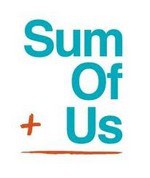On December 2-3, 1984, as the people of the central Indian town of Bhopal slept, over 40 tons of a deadly toxic gas -- methyl isocyanate -- leaked from the pesticide plant owned by Dow Chemical subsidiary Union Carbide India Limited. Company executives could have warned the public, but instead chose not to sound the emergency alarm bell in town, sending confused parents and children fleeing directly into the poison cloud.
The Bhopal disaster -- the worst industrial disaster in history -- has so far claimed over 20,000 lives. And the death toll is still rising, 28 years later, because Dow Chemical -- the company responsible -- has never cleaned it up. To this day, chronic health problems, cancer, and birth defects plague over 100,000 people in this impoverished community.
Now, over loud protests by the Indian Olympic delegation, Dow has signed a controversial sponsorship deal with the Olympics expected to make Dow $1 billion. With Dow counting on that revenue, we have the best chance in years for it to finally assume responsibility and clean up the disaster. We are finally hitting the company where it hurts: its bottom line.
On Wednesday, the Lord Mayor of London will convene a public meeting where victims’ advocates will be speaking up against the Dow sponsorship. Let’s stand with them in solidarity and demand that the London Olympics organizers drop Dow as a sponsor until the Bhopal victims see justice -- our partners at ActionAid will deliver them at the meeting.
In many ways, Dow is the poster child for corporate wrong-doing. Its executives are putting their profits ahead of ethical and legal responsibilities to the suffering Bhopal community. If this disaster happened in the United States, Great Britain, or another developed country, Dow couldn’t just have abandoned thousands to die and suffer crippling diseases -- but because the victims are poor and Indian, Dow has been able to ignore their plight.
Dow’s executives only speak one language: The language of money. The problem with companies like Dow is that they’re not consumer-facing -- their products are bought by companies whose products are bought by other companies -- and even those companies have brands we may never have heard of. So we can’t just boycott them.
But now, with Dow aiming to make millions off the Olympics, we have a rare opportunity to put real pressure on the company to do the right thing -- clean up the mess in Bhopal that’s still killing people, and fully compensate the disaster’s victims -- and punish it if it won’t.
SumOfUs is a movement of citizens -- consumers, workers, investors, and voters -- around the world working to hold corporations accountable for their actions. Dow’s behavior towards the people of Bhopal is one of the most monstrous examples of corporate irresponsibility. If we allow Dow to profit from the Olympics of all events, the worst corporations in the world will see that they can get away with anything.
But if we act together, SumOfUs members can send a powerful message to those same corporations that consumers around the world will stand by their victims until they see justice.
Thanks, Emma, Kaytee and the rest of us at SumOfUS
FAQ
Why is Dow responsible for the situation?
After Dow Chemical bought Union Carbide in 2001, Dow Chemical claimed that they were not responsible for the tragedy and its aftermath.
Fast-forward to 2001, Union Carbide merged with Dow Chemical Co., the makers of the Vietnam War's notorious Agent Orange. Dow took on Union Carbide's plants, business processes, customers, and intellectual property. It also took on the company's liability -- and neglect -- of the Bhopal disaster. Dow claims they’re not responsible for the tragedy and its aftermath, and refuses to clean up the Bhopal site, denying liability and refusing to release precise details of the chemicals released during the accident -- which could help treat those who remain ill. A company cannot buy another company to benefit from its assets without being responsible for its liabilities.
How has Dow responded?
Dow claims that it is not responsible for the 1984 Bhopal gas tragedy in any way. They even hired the same public relations firm as Union Carbide hired after the Bhopal tragedy, Burston Marsteller, to help clean up their image.
Union Carbide paid $470 million in compensation to existing victims in 1989, amounting to less than $500 per victim -- this for people blinded by the gas, for those with terminal cancer or debilitating birth defects. To date, neither Union Carbide nor Dow has paid to clean up the site, and refused to even decommission the factory after the accident.
Dow is already feeling the heat from domestic and international pressure. Because of international pressure, their branding will not appear on their £7 million London Olympic stadium wrap.

